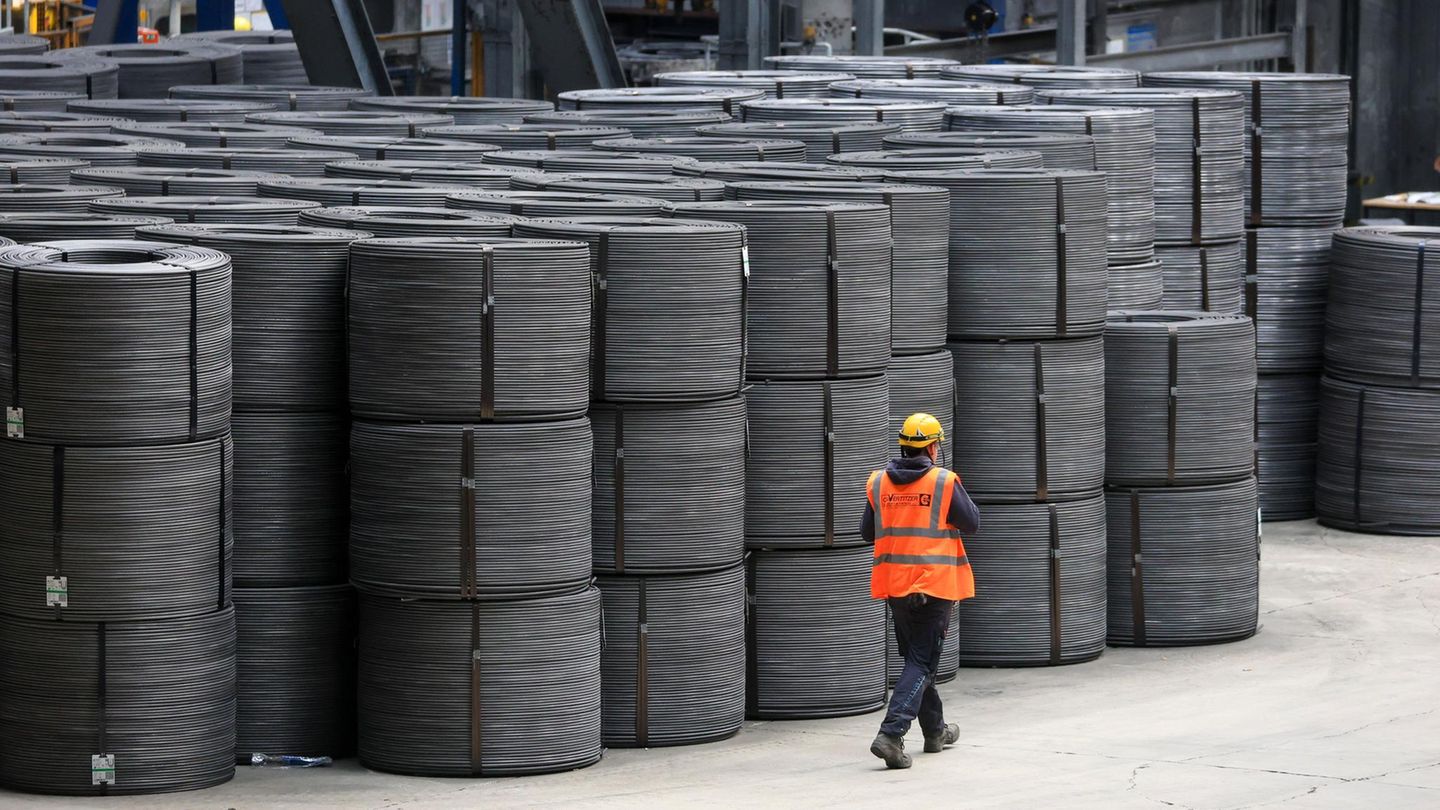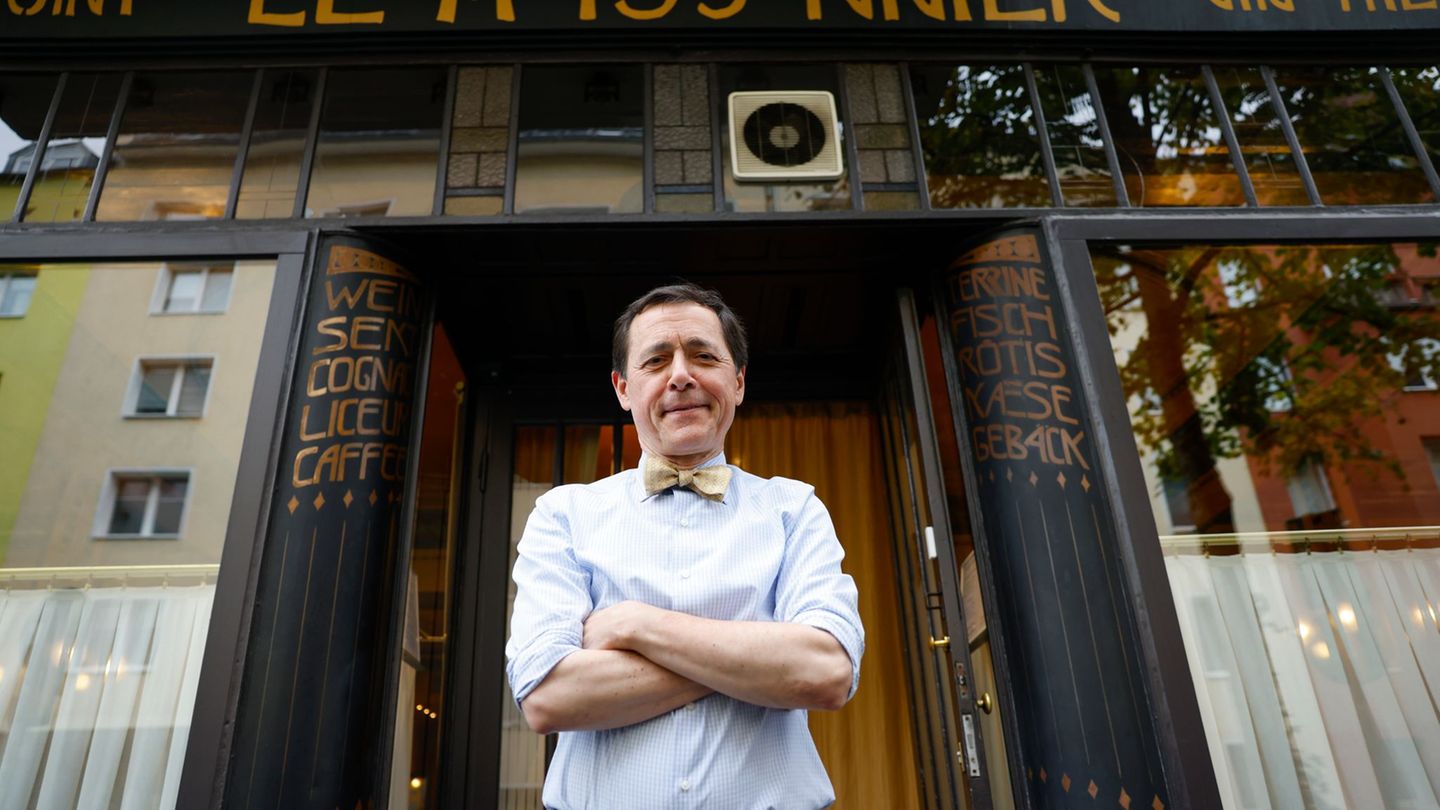“Ultimate Ratio”
If necessary, the SPD wants to protect the steel industry through state participation
Copy the current link
Add to watchlist
The steel industry is under massive pressure. Before the planned summit in the Chancellery, the SPD is alarmed – and after star-Information on drastic measures ready.
Before the steel summit in the Chancellery, the SPD parliamentary group is pushing for several measures to protect the Steel industry and as a “last resort” wants to let the state get into steel production.
“The state can reserve the right to enter into steel production in justified individual exceptional cases,” says an internal draft of a position paper published on Tuesday by the SPDparliamentary group should be decided and that star is present. “In order to secure domestic capacities, avoid strategic dependencies and enable investments in climate-neutral production processes, state entry into German steel production must be an option in justified individual exceptional cases.” The step is intended to avoid strategic dependencies if necessary, secure co-decision rights and protect Germany’s security interests.
The future of the steel industry must, above all, be secured through concrete industrial policy measures. That’s why state entry is “at the end of our priorities – as a supplementary instrument for absolutely exceptional cases, not as a replacement for an active industrial policy.”
Steel industry in Germany under pressure
According to the business association Steel As of August, around four million people in Germany work in steel-intensive industries, around 80,000 of whom work directly for the steel industry. In 2024, the industry recorded a decline in sales for the second time in a row – minus 5.3 billion euros compared to the previous year to 45.3 billion euros. Chancellor Friedrich Merz (CDU) therefore wants to hold a “steel summit” in the fall to address the industry’s problems. The Social Democrats have been pushing for a dialogue with the industry for a long time.
The draft paper states that the competitiveness of the German steel industry is “acutely at risk”. Global overcapacity, increasing trade conflicts and protectionist tariffs are responsible. In addition, there are high energy prices compared to international standards and an “enormous need for investment” in the climate-neutral conversion of production. “If we do not succeed in restoring the competitiveness of the steel industry, thousands of jobs will be lost,” warn the comrades.
The Social Democrats are pushing ahead of schedule Steel peaks in the Chancellery are calling for “urgent, effective industrial policy measures” and want to take action in several areas. The core message: “We are clearly committed to preserving all steel locations, steel production and steel processing in Germany.”
SPD parliamentary group is pushing for industrial electricity prices
For example, the European and German markets should be protected from dumping competition. The SPD parliamentary group therefore “expressly” welcomes the EU Commission’s proposal to reduce import quotas for steel by around half and to increase tariffs on quantities in excess of this to 50 percent. In addition, clear “Buy European” requirements are needed in national and European procurement law.
At the same time, a “mix of political measures” should ensure that an internationally competitive electricity price level is achieved for the steel industry. The SPD parliamentary group is therefore committed to relieving energy-intensive companies’ electricity costs through a federal subsidy beyond 2026. In addition, the introduction of a “reliable and competitive” industrial electricity price is called for “as quickly as possible,” which should be linked to location guarantees and employment commitments.
In addition to competitive energy prices, demand for green steel should also be stimulated by introducing “binding sustainability criteria and quotas” in public procurement. The ramp-up of hydrogen production must be accelerated.
Overall, the SPD parliamentary group wants to ensure competitiveness, employment and the transformation towards climate-friendly production in the steel industry with its measures. “This is the only way to preserve the steel industry as the beginning of the industrial value chain and as a decisive resilience factor in Germany – and thus also secure the industrial location as a whole,” it says.
At the same time, the Social Democrats are aware of the tense budget situation, which SPD Finance Minister Lars Klingbeil has been pointing out for months. The proposals are therefore “subject to the provision of appropriate funds,” it is said.
Source: Stern
I have been working in the news industry for over 6 years, first as a reporter and now as an editor. I have covered politics extensively, and my work has appeared in major newspapers and online news outlets around the world. In addition to my writing, I also contribute regularly to 24 Hours World.





